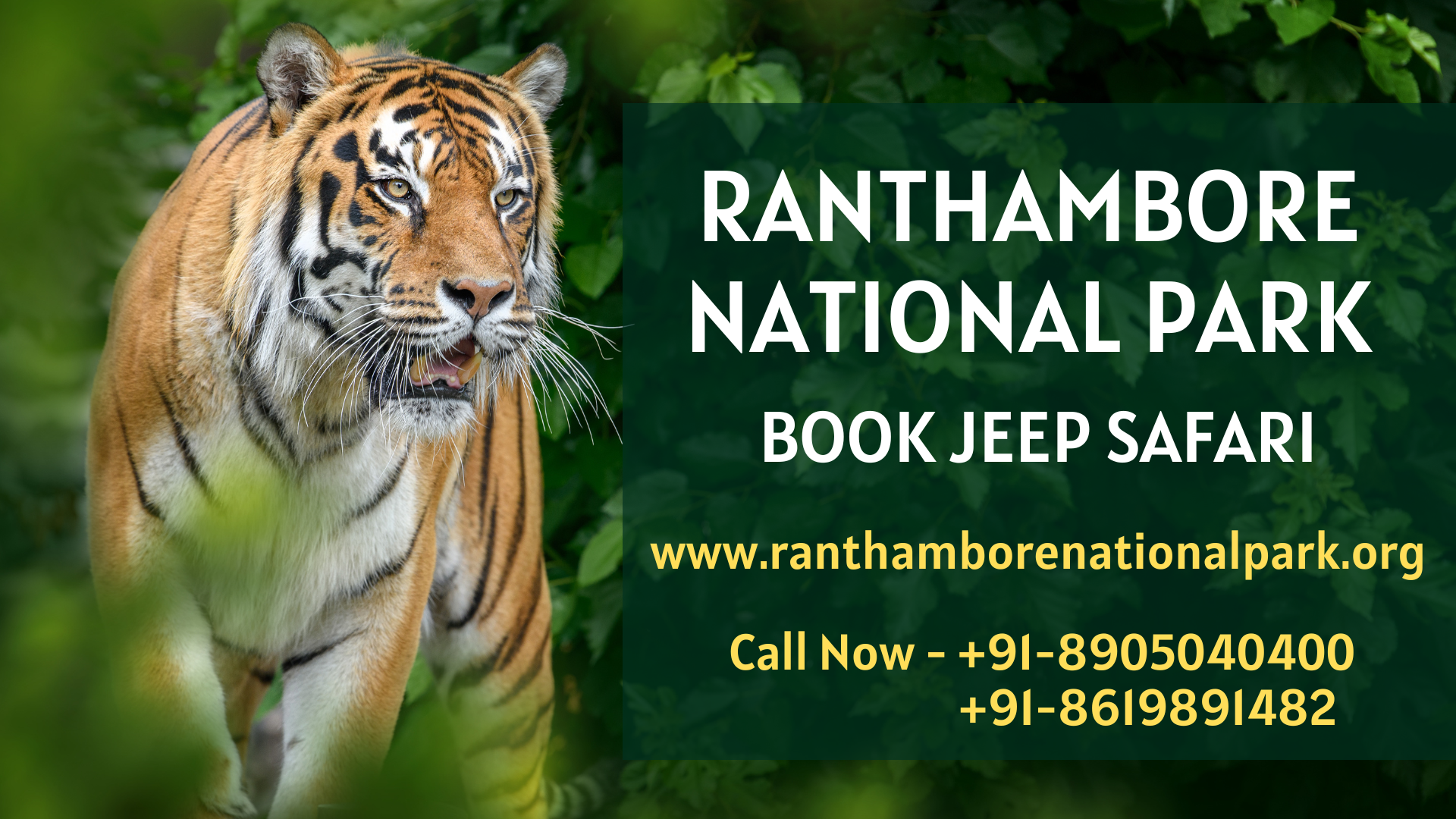Ranthambore Safari Booking: An Unforgettable Wildlife Experience

Ranthambore National Park, situated in the Sawai Madhopur district of Rajasthan, India, is a wildlife lover's paradise. Known for its magnificent tigers, varied plants and animals, and awesome landscapes, the park uses an unparalleled safari experience that attracts visitors from all over the world. Whether you're a seasoned wildlife photographer or a first-time explorer, booking a Ranthambore safari Booking guarantees an adventure that will stay with you for a lifetime.
Why Book a Ranthambore Safari?
Ranthambore is one of the best places in India to spot the Royal Bengal Tiger in its natural habitat. The park's thick forests, rolling hills, and open meadows supply the best setting for these splendid animals to stroll easily. But tigers aren't the only tourist attraction-- Ranthambore is home to a wide range of wildlife, including leopards, sloth bears, crocodiles, and over 300 species of birds. The park's biodiversity and the chance to witness wildlife in close proximity make it a must-visit destination.
Kinds Of Safaris Available
Visitors to Ranthambore National Park can pick in between 2 main types of safaris: the Jeep Safari and the Canter Safari
• Jeep Safari: Ideal for smaller groups, the Jeep Safari is performed in a 6-seater open vehicle, using a more intimate and versatile wildlife viewing experience. The smaller size of the vehicle permits access to narrow courses and unique tracks, increasing the possibilities of spotting evasive animals.
• Canter Safari: The Canter Safari is a 20-seater open bus, ideal for bigger groups. While it covers similar routes as the Jeep Safari, the experience is more common, and it's an outstanding choice for budget-conscious travelers.
Each safari lasts around 3 hours and takes place two times a day-- as soon as in the early morning and once in the late afternoon. These timings are created to coincide with the peak activity periods of the park's wildlife, maximizing the opportunities of sightings.
Booking Your Safari.
Booking a safari in Ranthambore can be done online through the main website of the Rajasthan Forest Department or through authorized travel representatives. It is a good idea to book well in advance, specifically during peak seasons (October to June), as the variety of vehicles allowed in the park is limited to decrease environmental effect. When booking, you can select between various zones of the park, each offering a special landscape and wildlife experience. Zone 1 to 10 are the most popular, with Zones 1 to 5 being known for greater possibilities of tiger sightings.
Accommodation Options
Ranthambore provides a range of lodging options to match every budget, from luxury turn to environmentally friendly lodges and spending plan hotels. Staying near the park entrance is advised for easy access to your safari, specifically for early morning slots. Lots of resorts and hotels also provide plans that include safari reservations, guided tours, and cultural experiences, supplying a comprehensive Ranthambore experience.
Finding Ranthambore Fort: A Journey Through History
While the wildlife safari is the piece de resistance at Ranthambore, the park is also home to the historical Ranthambore Fort, a UNESCO World Heritage Site that adds a rich cultural rajasthan tourism measurement to your go to.
A Glimpse into the Past
Ranthambore Fort, set down atop a hill within the national park, dates back to the 10th century and is one of the earliest forts in Rajasthan. The fort was a strategic defense point for the rulers of the region, managing the trade routes in between North and Central India. It has experienced many battles, especially throughout the reign of the Chauhan dynasty, and later under the control of the Delhi Sultanate.
The fort is a sprawling complex with enormous stone walls, imposing gates, and several temples and palaces within its facilities. As you explore its ancient ruins, you can nearly hear the echoes of history and picture the splendour of the fort in its prime time.
Key Attractions at Ranthambore Fort
• Ganesh Temple: One of the most revered temples in the region, the Ganesh Temple within the fort is a major trip site. Fans from throughout the country check out to look for true blessings from Lord Ganesh. The temple's tranquil surroundings and panoramic views of the park make it a tranquil retreat.
• Jogi Mahal: Situated near the Padam Talao, the biggest lake in the park, Jogi Mahal was as soon as a hunting lodge for the Maharajas of Jaipur. Though not open to the public, the mahal's place supplies sensational views of the lake and the surrounding wilderness.
• The Fort's Architecture: The architecture of Ranthambore Fort is a mix of Rajput and Mughal styles, reflecting the various rulers who have inhabited it over the centuries. The fort's bastions, gates, and temples are decorated with detailed carvings and sculptures, using a glimpse into the artistic heritage of the region.
Exploring the Fort
Going To Ranthambore Fort is like stepping back in time. The fort can be reached by a short trek from the park entrance, providing a chance to delight in the natural appeal of the environments. The path is properly maintained and supplies sensational views of the park and the neighboring lakes. As soon as inside the fort, you can invest hours exploring its numerous structures, each with its own story to inform.
Integrating Wildlife and Heritage
A journey to Ranthambore is insufficient without experiencing both the exhilarating safari and the historic fort. The combination of wildlife adventure and cultural exploration makes Ranthambore an unique destination, offering something for everyone. Whether you're admiring a tiger in the wild or taking in the history of the fort, Ranthambore assures a remarkable journey that will leave you with stories to share and memories to value.
When preparing your check out, ensure you allocate time for both the safari and a fort tour. This way, you can fully value the natural and historic significance of this extraordinary area.